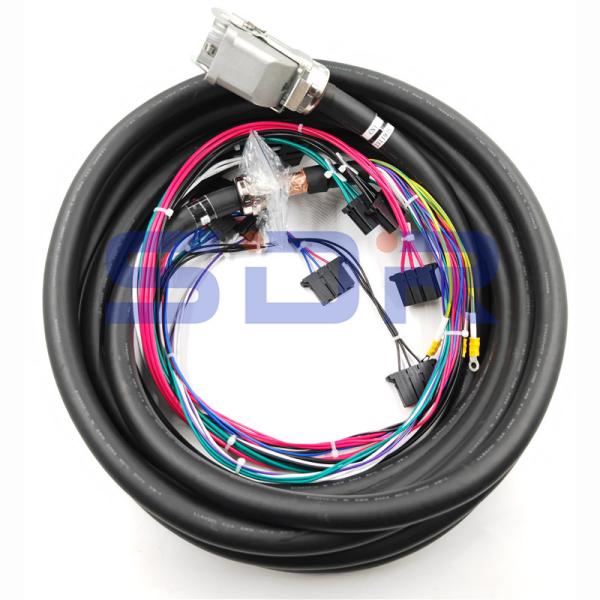In the world of industrial automation, the efficiency and reliability of robotic systems are paramount. One of the crucial components ensuring the seamless operation of these systems is the cabling infrastructure. Among the various types of cables used in robotic applications, OTC Robot Cables stand out due to their specialized design and robust performance.

What Are OTC Robot Cables?
OTC Robot Cables are specially designed for use in robotic systems, particularly those manufactured by OTC Daihen, a leading provider of robotic welding and automation solutions. These cables are engineered to withstand the demanding conditions of industrial automation, including continuous motion, harsh environments, and exposure to chemicals and extreme temperatures.
Key Features of OTC Robot Cables
Flexibility and Durability:One of the primary characteristics of OTC robot cables is their exceptional flexibility. These cables are designed to endure repetitive motion without degradation, making them ideal for robotic arms and other moving components. The use of high-quality materials ensures that the cables maintain their integrity over time, even in continuous motion applications.
Resistance to Harsh Environments:Industrial settings often expose cables to various harsh conditions, including high temperatures, chemicals, oils, and mechanical stress. OTC robot cables are built to resist these elements, ensuring reliable performance and longevity. This resistance minimizes downtime and maintenance costs, contributing to overall operational efficiency.
High Electrical Performance:The precision and efficiency of robotic systems heavily rely on the electrical performance of their cables. OTC robot cables are designed to provide stable electrical characteristics, ensuring accurate signal transmission and power delivery. This stability is crucial for maintaining the precision of automated processes.
Shielding and Interference Protection:In industrial environments, electromagnetic interference (EMI) can disrupt the performance of electronic systems. OTC robot cables are equipped with shielding to protect against EMI, ensuring uninterrupted and reliable communication between robotic components and control systems.
Applications of OTC Robot Cables
OTC robot cables find applications in a wide range of industries where robotic automation plays a crucial role. Some key applications include:
Automotive Industry:In automotive manufacturing, robots are extensively used for welding, assembly, painting, and material handling. OTC robot cables ensure the reliable operation of these robots, contributing to the efficiency and precision of the manufacturing process.
Electronics and Semiconductor Manufacturing:The production of electronic devices and semiconductors requires high precision and cleanliness. OTC robot cables, with their reliable performance and resistance to harsh chemicals, are essential in maintaining the accuracy and cleanliness of robotic systems in these environments.
Food and Beverage Industry:Automation in the food and beverage industry involves processes such as packaging, sorting, and quality control. OTC robot cables, with their resistance to oils and chemicals, ensure the smooth operation of robotic systems in these applications.
Aerospace and Defense:In aerospace and defense manufacturing, precision and reliability are critical. OTC robot cables support the complex robotic systems used in the production and assembly of aerospace components, ensuring high standards of quality and safety.
The Future of OTC Robot Cables
As industrial automation continues to evolve, the demand for advanced and reliable robotic systems will grow. OTC robot cables will play a crucial role in this evolution, supporting new technologies and applications. Innovations in materials, design, and manufacturing processes will further enhance the performance and durability of these cables, ensuring their relevance in the future of industrial automation.
OTC robot cables are a vital component in the infrastructure of modern industrial automation. Their flexibility, durability, resistance to harsh environments, and high electrical performance make them indispensable in ensuring the efficiency and reliability of robotic systems across various industries. As technology advances, these cables will continue to support the ever-growing demands of automation, driving productivity and innovation in industrial processes.